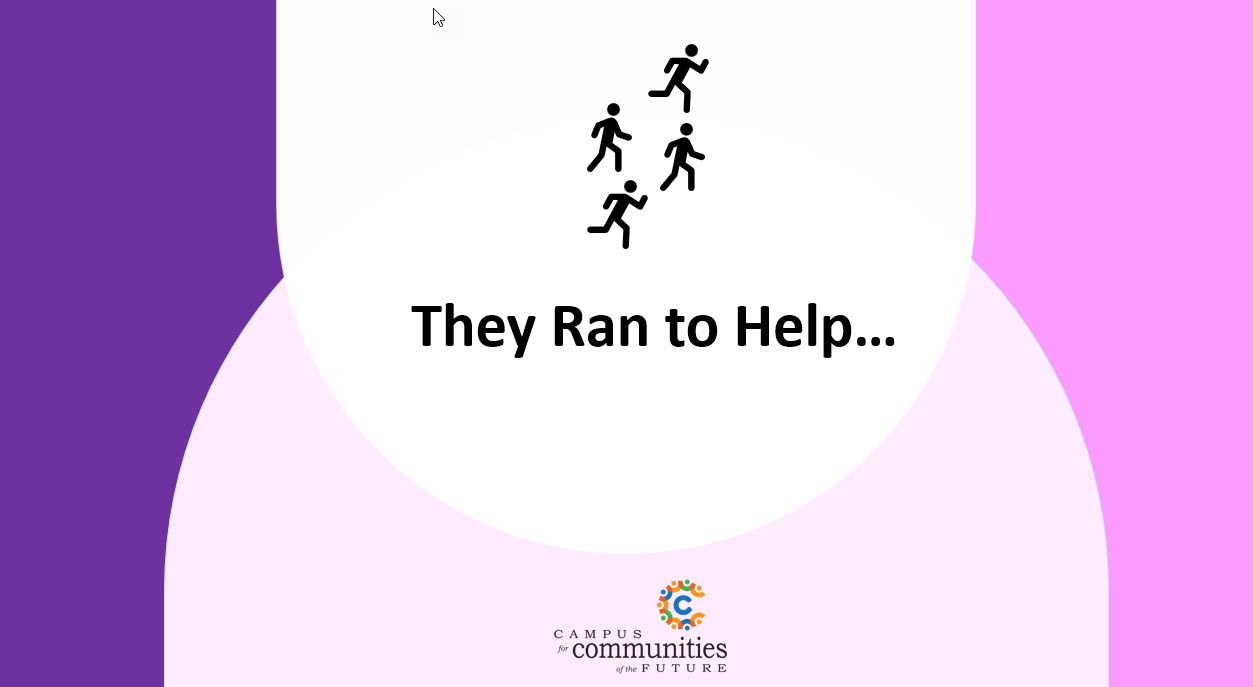They Ran to Help

While not especially earth-shattering, two recent incidents got me thinking about trust and its importance.
The first incident took place as my husband and I were running an errand and got stuck two cars behind a stalled pickup truck on a one-way bridge with no way to maneuver around.
As my husband and I watched, an adult male slowly struggled to get out of the passenger seat. We soon realized he was moving to the rear of the truck to try to push it out of traffic. It also became apparent that he was unsteady as the result of balancing on two artificial legs.
As soon as my husband was able to assess what was happening, he threw me the car keys, jumped out of the car, and ran to help. Seconds later, a young man from four cars behind us, came sprinting at breakneck speed to help, as did two other guys who ran from across the street.
Before we knew it, the truck – which apparently had run out of gas - had been pushed safely to the side of the road.
In the big scheme of life, it was a relatively minor event. However, the speed with which people reacted and jumped in to help was inspiring.
It was also a reminder of how lucky we are to live in a community where people care and didn’t hesitate to get involved. As such, it was a reminder that typically we do trust and have faith in citizens to make good decisions when it comes to supporting one another.
That same day, a colleague shared the results of a recent Canadian study by Evidence for Democracy suggesting we may not have that same trust in our elected officials and our government staff.
Nearly half (49%) of Canadians are dissatisfied with government transparency on factors that influence policy decisions, compared to only 25% who say they are satisfied.
Half of Canadians feel governments pay too little attention to evidence (53%) and public opinion (50%) and too much on political priority (52%) when making decisions.
Eight-in-ten (81%) Canadians want to see the key evidence used in government decision-making so they can better understand and evaluate decisions.
Having experienced my own challenges in being able to breach the red tape creating a fortress-like setting for government staff and elected officials at the local, regional, provincial and national levels, there is clearly work to be done.
While government typically views assets as being physical in nature, it would be ideal to see a mindshift that would allow them to also see citizens as equally, if not more, valuable as critically important assets.
Government can’t do it alone, but their collective wisdom and action of citizens can, and should be, tapped to help ensure we are positioned to respond to today’s increasingly complex challenges and opportunities.
Posted on 05-04-23Next entry: 7 Good Things About Tough Times
Previous entry: When Change Feels Too Hard….

 Brenda Herchmer is the owner of Grassroots Enterprises, a community development consulting company.
Brenda Herchmer is the owner of Grassroots Enterprises, a community development consulting company.